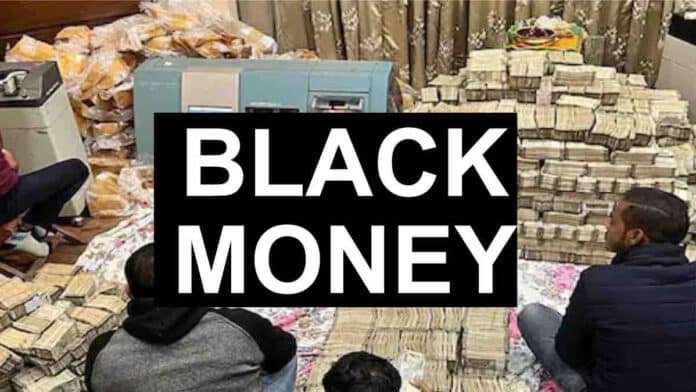That Central Board Of Direct Taxes (In short “CBDT”) had issued a circular dated 14.06.2019 for compounding of offences under Direct Tax Laws, 2019. In the said circular at point no. 8 it says that any offence committed under The Black Money (Undisclosed Foreign Assets Act), and Imposition of Tax Act, 2015 (In short “Black Money Act”) and The Benami Transactions (Prohibition) Act, 1988 (in short “Benami Act”) are generally not a compoundable offence, however there is a notwithstanding clause which says that Ministry Of Finance may relax restriction for compounding aforesaid offences in a deserving case, on a approval from the CBDT on the petition of the Applicant. Similar stand is being taken by the CBDT dated 16.09.2022 which is in force till date.
The only factor in the aforesaid circular dated 16.09.2022 relating to the compounding of the aforesaid offences is that now power of compounding is vested upon the CBDT on the approval from the Principal Chief Commissioner of Income in whose jurisdiction case of the Applicant’s lies.
Thus, it is clearly reflected from the aforesaid two circulars that offences related to Black Money Act and Benami Act are also compoundable offences although discretion is purely vested upon the CBDT on the approval of the said Principal Chief Commissioner of Income. However, the Principal Commissioner Of Income Tax have to pass a speaking order in case, he wish to reject any such application for compounding.
That the aforesaid observation may be substantiated from a judgment passed by the Hon’ble High Court Of Madras in case titled “K.M. Mammen Vs. The Principal Commissioner Of Income Tax” [2022] 139 taxmann.com 57 (Madras). In this judgment Hon’ble High Court held that even though in the circular 2019 a fair amount of discretion for compounding vested upon the department of revenue; still then also offences covered under para 8 of the said circular can be compounded. (Para 42)
PROCEDURE FOR COMPOUNDING:
That in para 11 of the aforesaid circular dated 19.06.2022, procedure for compounding is mentioned. But, this para generally speaks about the normal procedure for compounding of various offences committed under different acts not particularly about compounding of offences related to Black Money Act and Benami Act. However, in the absence of any specific provision, procedure given under para 11 may be treated as a guidelines for compounding of aforesaid offences. As per the circular, applicant has to send an application in the form of affidavit to the concerned authority.
As we discussed above, in case of compounding of aforesaid offences the competent authority would be regional Principal Chief Commissioner. In case of offences committed under the Benami Act , application may be send to the Initiating Officer who would send the same to be regional Principal Chief Commissioner through proper channel & in case of offences related to Black Money Act, application may be sent to concerned Assessing Officer or Tax Authority. A sample format is also given in the aforesaid circular for reference.
That on receipt of any such application, the concerned authority may reject the same by passing a speaking order in a prescribed format within a period of 6 months from the date of receipt of such application. If the concerned authority found any such application acceptable then he will send his recommendation to the CBDT & only after the approval of the Board the concerned authority will intimate the Applicant about the charges for compounding. Thereafter, the Applicant has to pay the requisite charges of compounding within a period of 1 month from the date of receipt of such intimation.
Conclusion:
As per section 53 of the Benami Act , prescribed punishment for committing any offence is 1 year of imprisonment which can be extended up-to 7 years & fine upto 25% of the fair market value of the property. Section 61 of the said act says that Benami offences are cognizable offences in nature whereas as per section 51(1) of the Black Money Act prescribed punishment is 3 years but may be extended up-to 10 years. However, in the said act there is no expresses classification whether the offences are ‘cognizable or non cognizable’. Therefore, in absence of any express provision one has to rely upon the provision of the Code of Criminal Procedure, 1973. In the Part-II of the First schedule of the code i.e. Classification of offences against other laws (other than Indian Penal Code, 1860), it say says that any offences punishable with imprisonment for 3 years & upwards are cognizable & non-bailable offences.
Thus, offences committed under section 51(1) of the Black Money Act are both cognizable & non-bailable. That reliance also placed upon a judgment passed by the Hon’ble High Court of Bombay in case titled “State of Maharashtra Vs. Suresh Ganpatrao Kenjale”( MANU/MH/0161/1994). That the judgment passed by the Hon’ble High Court has recently been upheld by the same Hon’ble High court in case titled “Piyush Subhashbhai Ranipa Vs. The State of Maharashtra” (MANU/MH/0593/2021).
As such punishments & penalties under the aforesaid acts are very stringent in nature. Accused may take the recourse of compounding of offences if he feels that value of the property or undisclosed assets are substantially less or for any other reasons in his interests. Further, Revenue Department shall also consider such types of applications at large where it feels that compounding would be a better course in order to save time & expenses of the revenue because prosecution & trial needs lots of resources which can be saved through the course of compounding.
AUTHOR:
R. Madhav Bera
An Advocate practising in Supreme Court , High Court & various District Courts & Tribunals etc. at Delhi.
E-Mail: madhavbera@gmail.com




